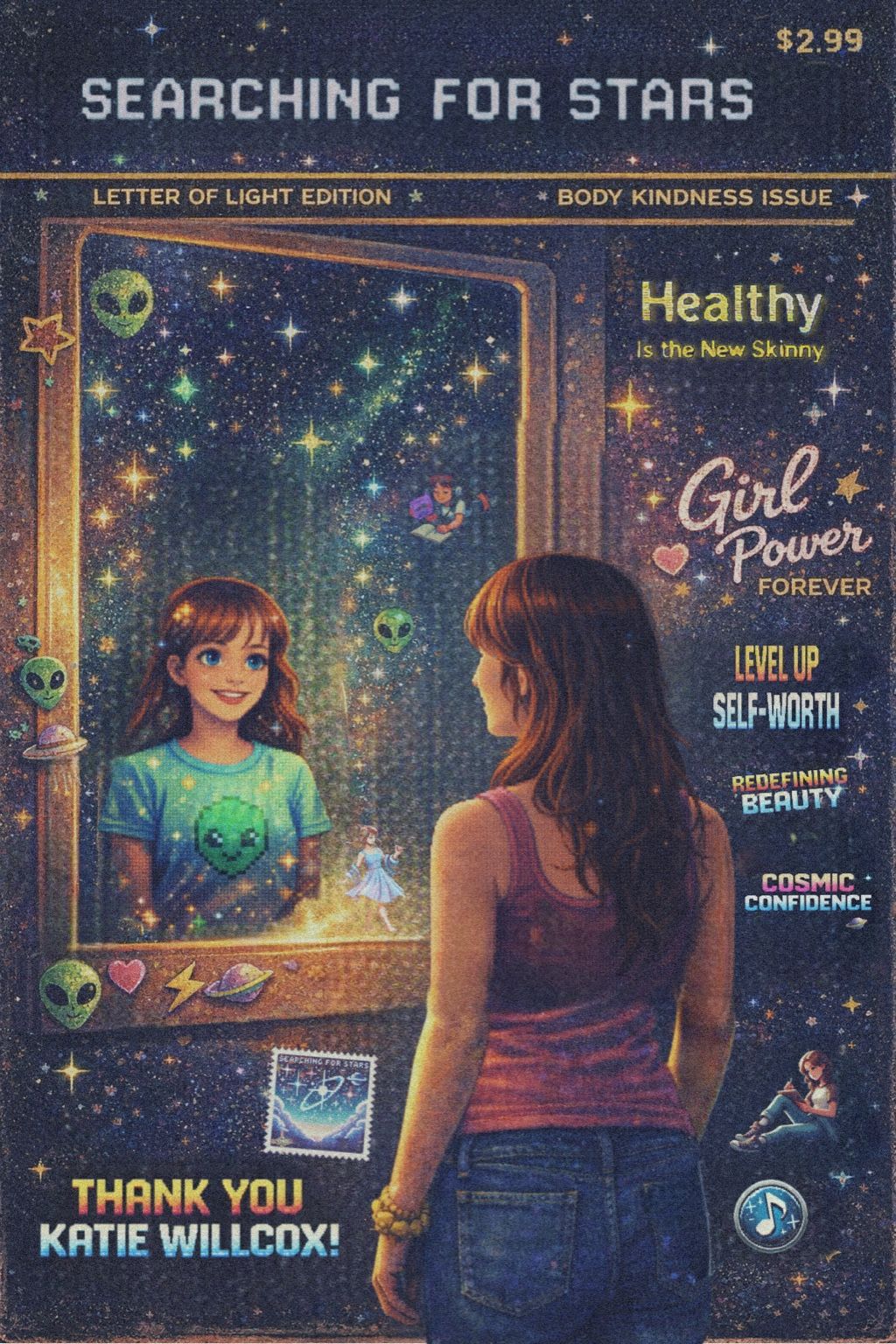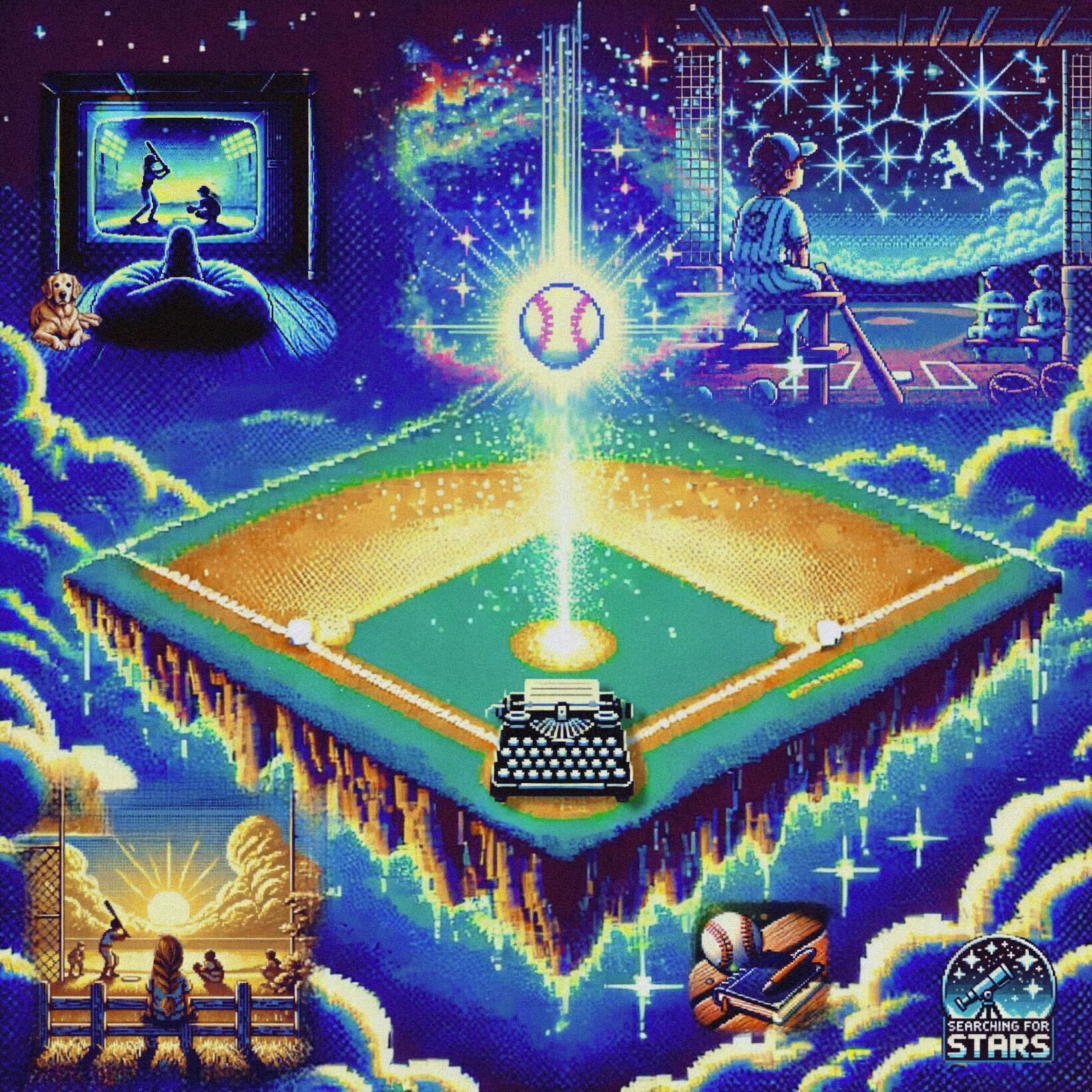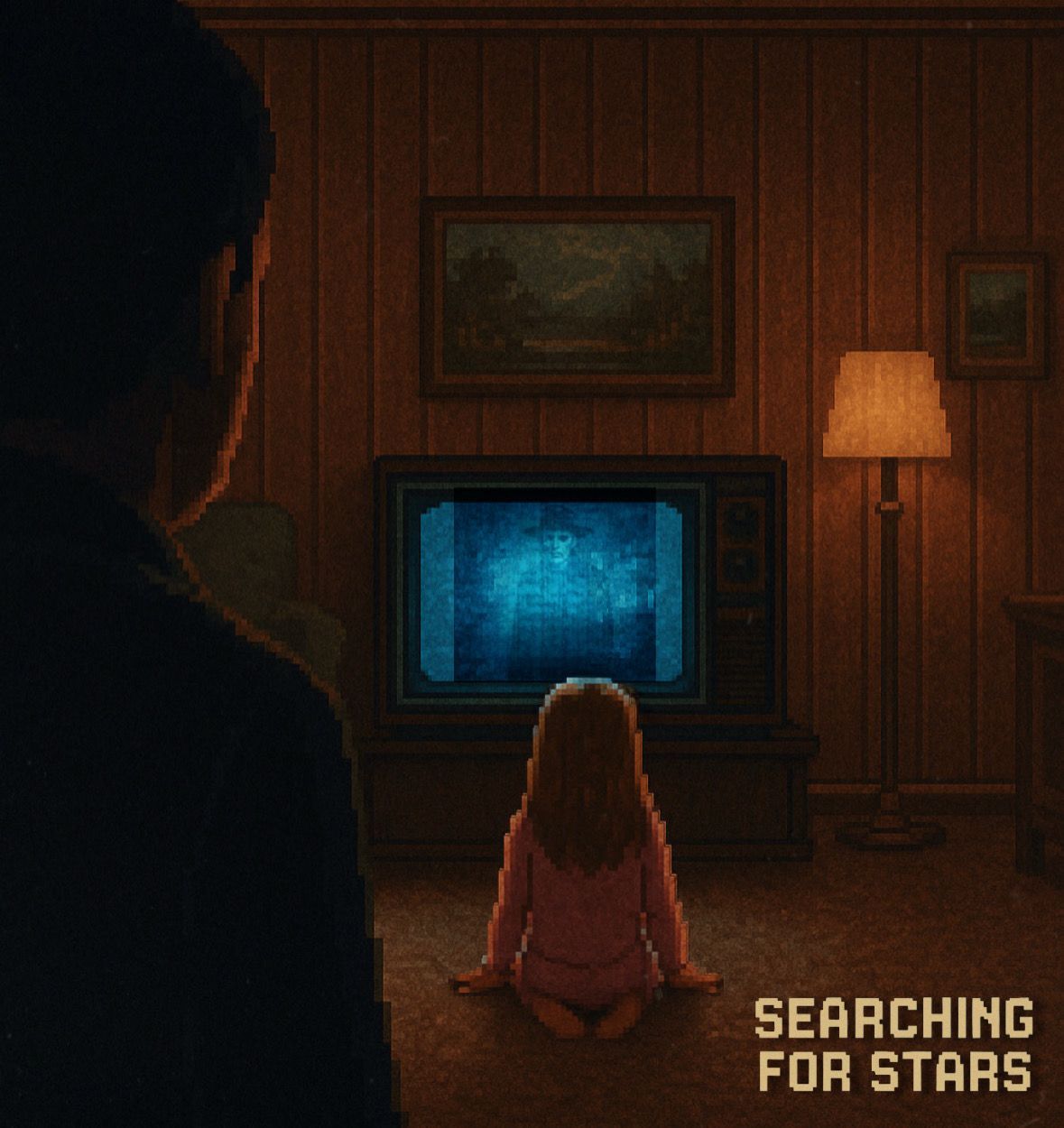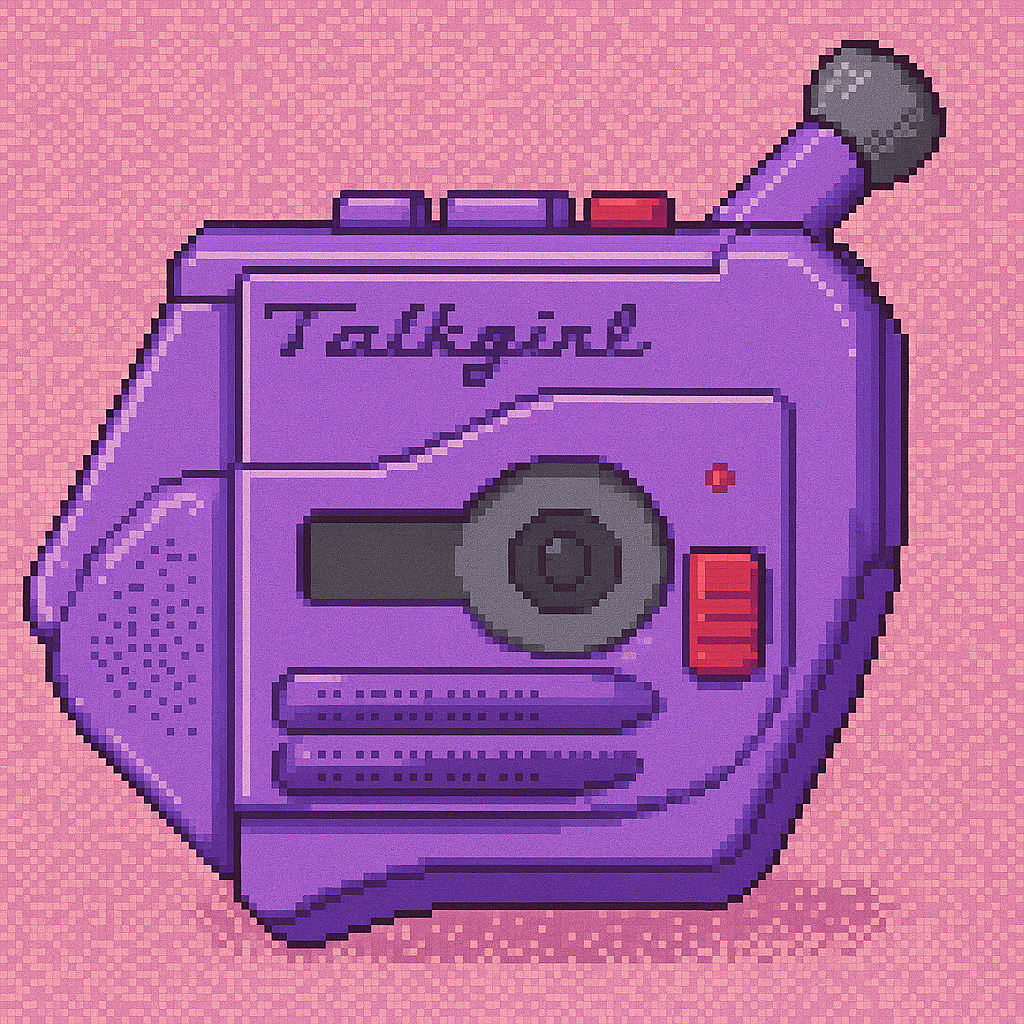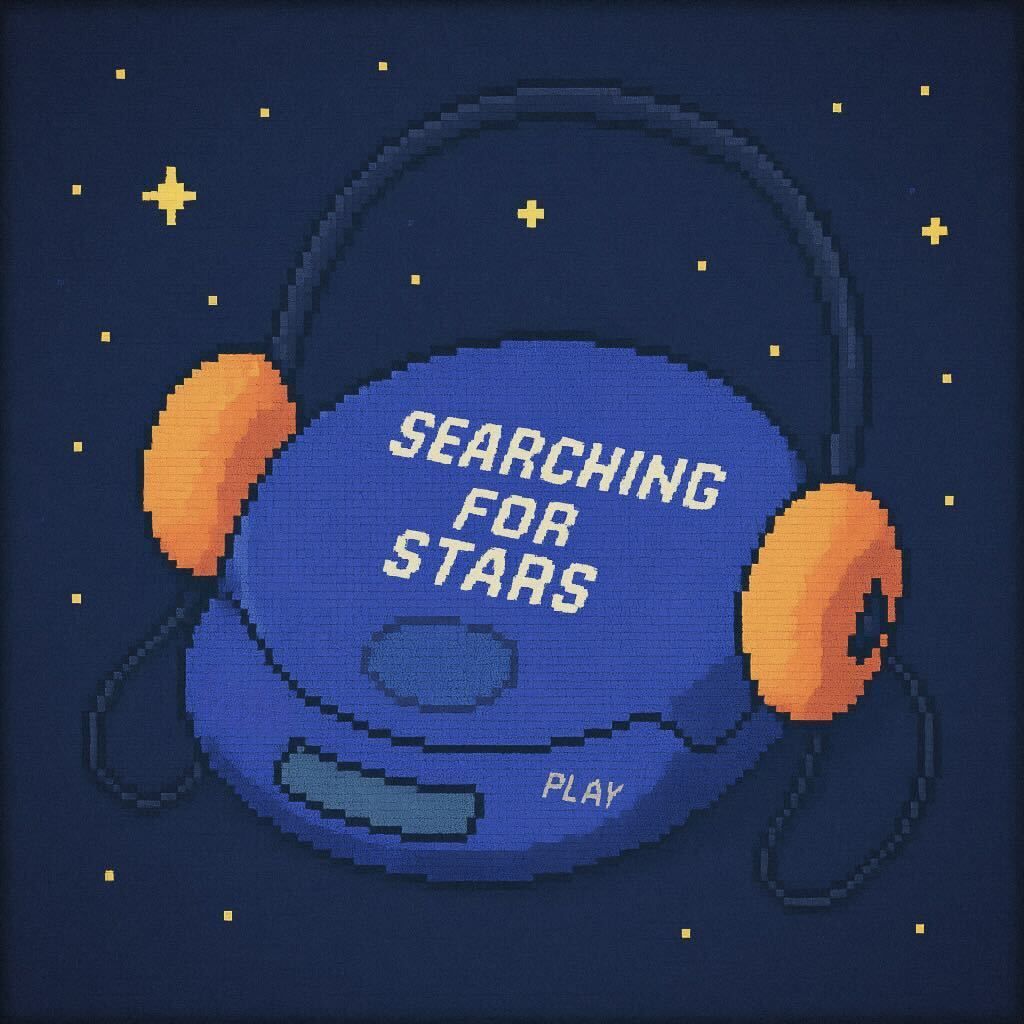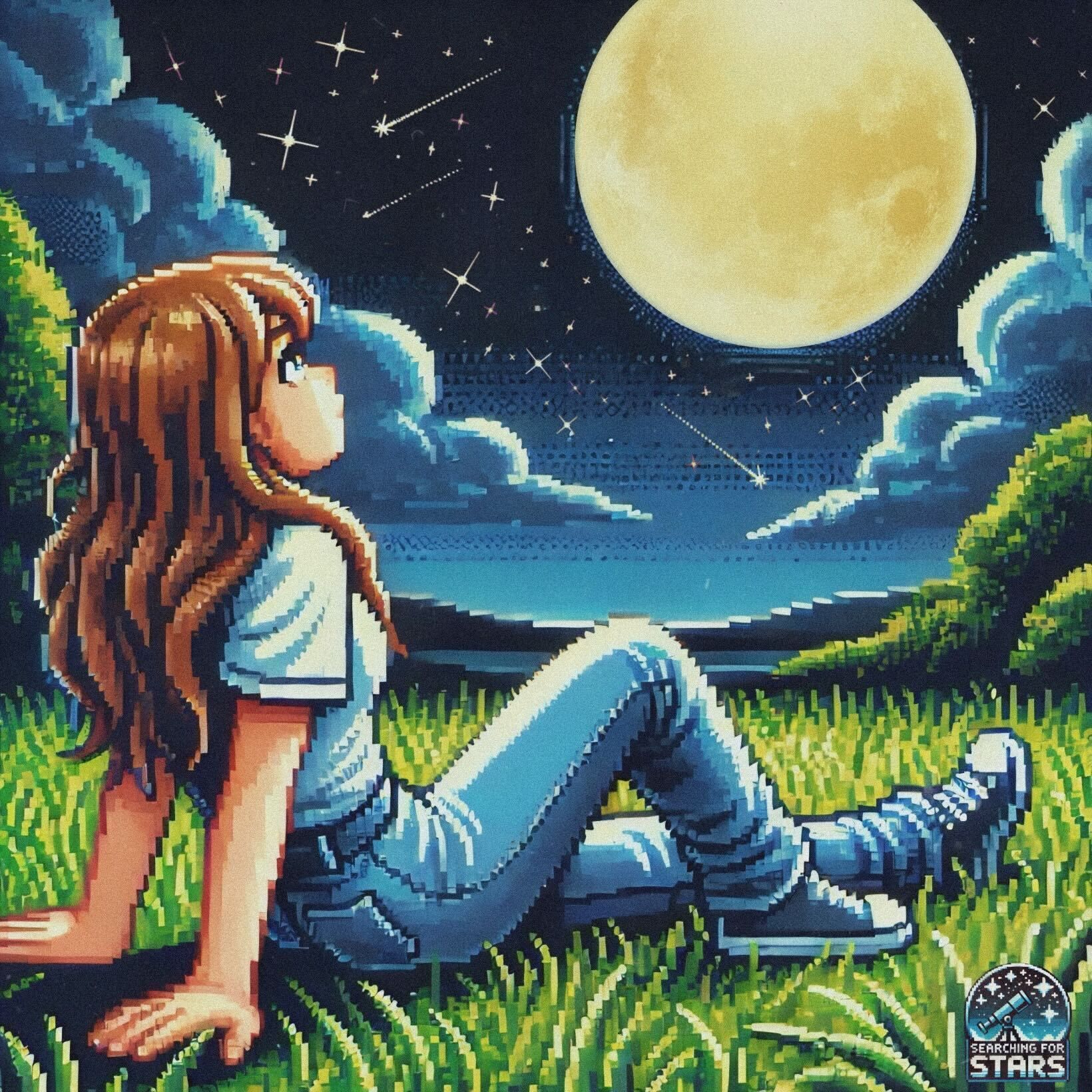If You Write It, They Will Read Stories Built from Stardust
Film:
Field Of Dreams
Field of Dreams
I was curled up in our giant beanbag, blankets tangled around me, Max nestled against my side. Our living room was dim, the television’s glow casting soft shadows against the walls. The beanbag itself was part of my parents’ unorthodox approach to home furnishing (hippie pragmatism at its best). My mom had decided one day that we needed a new couch, got rid of the old one, and assumed my dad would replace it. He didn’t. Instead, he got us the world’s biggest beanbag and a couple of recliners, and that was that. We loved it.
That’s where I first saw Field of Dreams curled into that beanbag, transfixed. I was young, maybe Karen’s age, when I first watched it, but I remember being completely drawn in. It wasn’t just a baseball movie. It was something bigger, something that spoke to me in a way I didn’t yet have the words for. I remember my mom loved the film. I sat still, watching it with unwavering focus.
I didn’t understand everything then, but I felt it. The rhythm of the story, the way Kevin Costner narrated with a quiet reverence, the poetry of it all. And then there was Terrence Mann. There was something about him, about the way he carried words like they were sacred, about the way he saw things beyond the surface. He wasn’t just a character to me he was an idea, a spark, a quiet voice in the back of my mind whispering, you could be a writer.
By the time the credits rolled, I knew. I wanted to write. I wanted to tell stories that reached into people’s chests and held their hearts the way this movie held mine. Someday, I wanted to write something powerful, something that helped someone... that inspired them to believe in something bigger than themselves.
Baseball was everywhere when I was a kid. Maybe it was just the time, maybe it was our tiny Texas town, but it felt like a constant, woven into the fabric of our days. My mom had this way of turning boredom into adventure she’d grab our baseball gear, round up my brother and me, and then set off on foot through the neighborhood, collecting kids like a one woman baseball recruiter. “Who wants to play?” she’d call out, and before long, we’d have a whole field of kids gathered at the park. It felt like something out of The Sandlot, like we were part of some great, unspoken tradition of childhood summers.
I wasn’t just tagging along. I played. I wanted to be just as tough, just as good as the boys around me my brother Bobby, the Greer boys, Trey, Billy, Tommy. Most of my mom’s friends had sons, and they were all like brothers to me. I had to keep up. I had to be cool. Playing alongside them, I learned to be tough, to hold my own, and to push through challenges, lessons that stayed with me beyond the game.
One game stands out in my memory. I was on second base when David Greer stepped up to bat. He swung, connected, and the ball rocketed straight into my knee. Pain flared up my leg, a sharp, breath stealing jolt, but I swallowed it down. I could have fallen. I could have cried. But the part of me that was still just a little girl (the one who wanted so badly to impress the boys) refused to. Instead, I ran. I pushed through the pain, rounded third, and made it home. Trey cheered the loudest, grinning as he called me hardcore, telling me how awesome that was. And in that moment, the pain didn’t matter. I had done it.
Field of Dreams isn’t just a movie about baseball. It’s about belief, about trusting in something even when the world tells you it’s crazy. It’s about faith—the kind that pushes you forward when everything inside you screams to turn back.
James Earl Jones’ speech still gives me chills. The way he talks about baseball as something timeless, something that connects generations that resonates with me, but it’s the deeper meaning that truly sticks.
Baseball, like music, has this unshakable way of threading through time, binding people together across years, across lifetimes. A song, like a game, can transport you. Suddenly you’re not just in the present, you’re everywhere you’ve ever heard that melody, everywhere you’ve ever stood beneath stadium lights, the hum of the crowd mixing with the echoes of something unspoken yet deeply felt. Both are more than just pastime or entertainment; they are inheritance, passed from one heart to another, uniting people who may have never met, yet somehow share the same story.
When Karen speaks up and says, Don’t sell the farm, that’s the heart of it. It’s not just about the land; it’s about not giving up, not letting fear make your choices for you. It’s about holding onto the things that matter even when everything feels uncertain.
I don’t think I fully understood that as a child. But as an adult, when I hear his words, I feel them differently. They bring comfort. They remind me to stay the course, to keep writing, to keep believing, even when it feels impossible. To keep searching for stars.
I think back to that little girl on the beanbag, wide-eyed and still, taking it all in. Maybe she didn’t fully understand why she felt what she felt. Maybe she didn’t need to. Because she knew, deep down, that she was supposed to be paying attention. That this story mattered. And that one day, she would tell her own.
Searching For Stars
